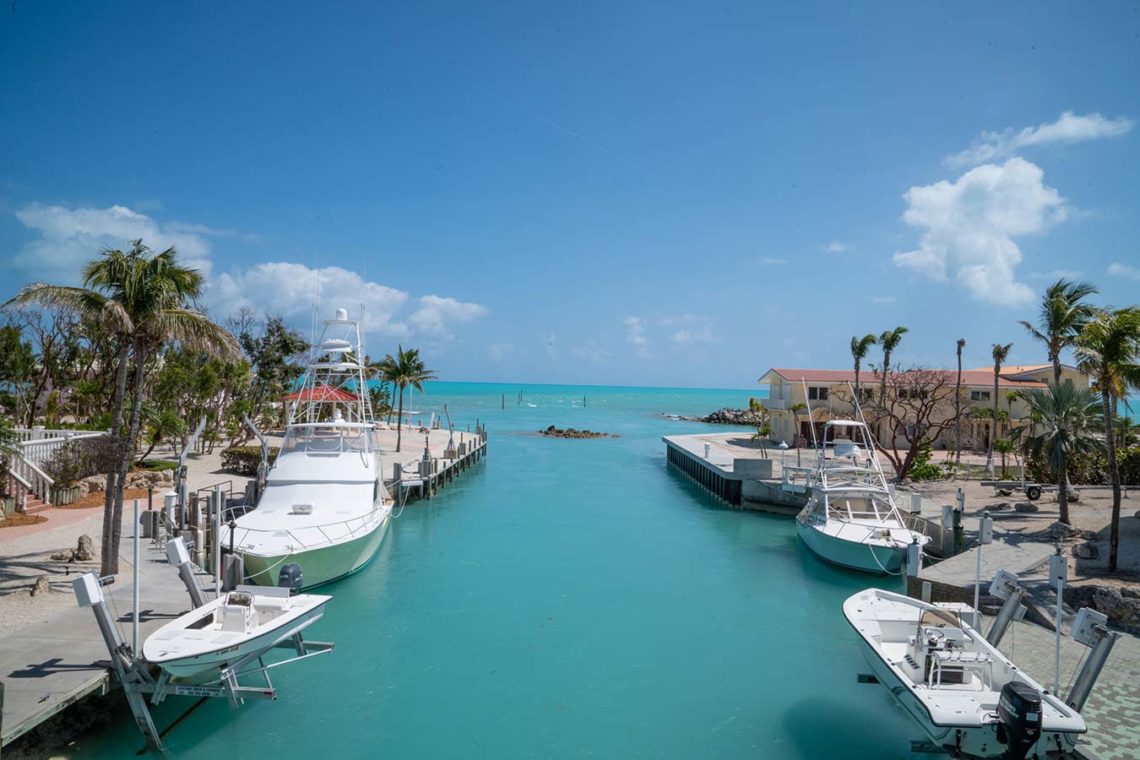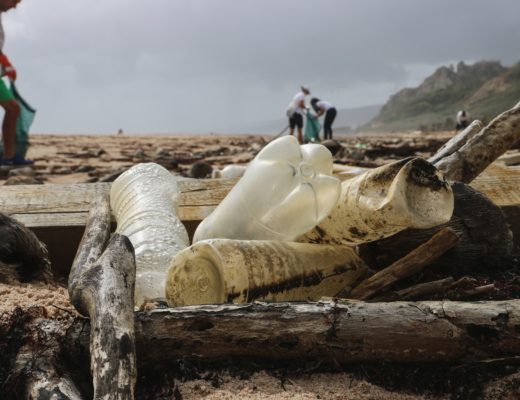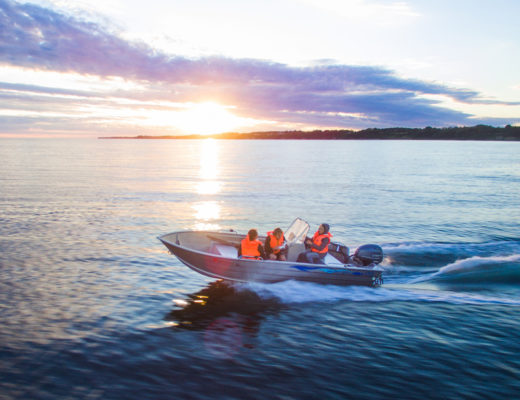Florida is famous for its sparkling waters, whether you’re a beach fanatic, a river fiend, or a lake lounger. Boating in Florida is a quintessential part of being a Floridian, and it’s a state known for its sheer amount of water. While you should always watch out for gators (seriously!), there’s not much better than a boat day in the great state of Florida.
However, if you take your boat out on Florida waters, it needs to be properly registered to ensure legal operation. Here’s BOATsmart!’s guide to getting your boat ready to be legally taken out on the beautiful waters that call Florida home. Follow these steps to ensure you’re legally registered to operate a boat in Florida.
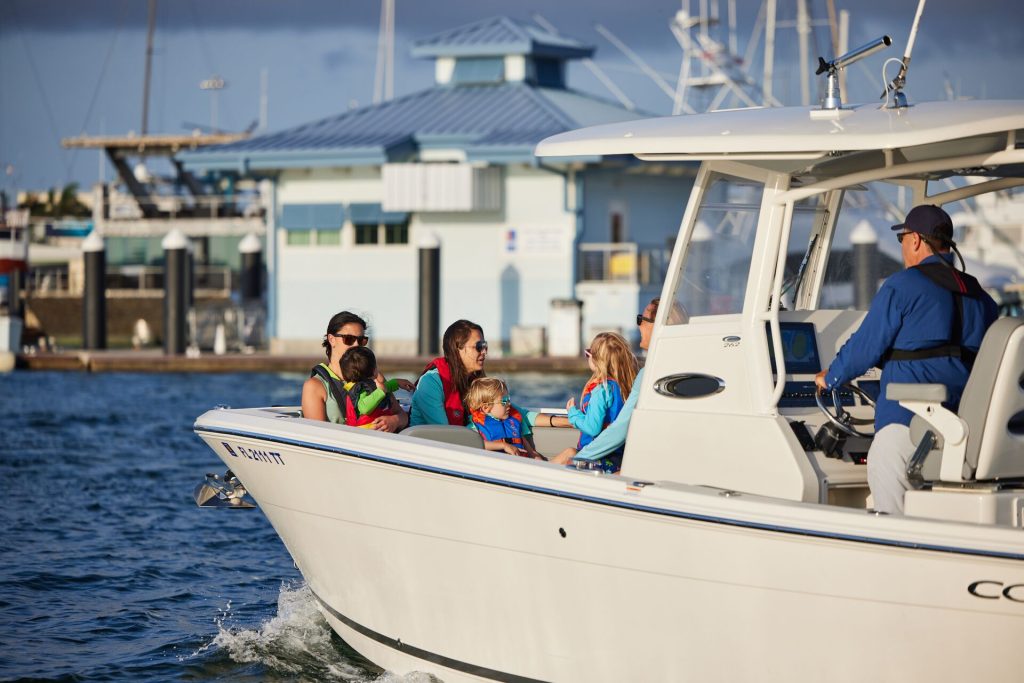
How Do I Know If My Boat Needs to Be Registered?
All used and new motorized boats in the state of Florida must be properly titled and registered within 30 days of purchase to ensure legal operation. So, if you recently bought a boat with a motor, make sure you get it registered quickly.
What Boats Are Exempt From Boat Registration in Florida?
The following boats and vessels are exempt from boat registration in Florida:
- Vessels stored and used solely on private lakes or ponds
- Non-motorized vessels less than 16 feet long
- Federally documented vessels and vessels owned by the United States government, the State of Florida, or any of its political subdivisions
- Vessels used exclusively as a ship’s lifeboat
- Non-motorized canoes, kayaks, and racing shells or sculls regardless of length
What Boats Are Exempt From Titling in Florida?
Your boat’s title is different than the registration.
The following boats and vessels are exempt from titling in Florida:
- Vessels stored and used solely on private lakes and ponds
- Non-motorized vessels less than 16 feet in length
- Federally documented vessels and vessels owned by the United States government, the State of Florida, or any of its political subdivisions
- Vessels used solely for demonstration, testing, or promotional purchases by an authorized dealer or manufacturer
- Vessels already lawfully registered in another state or by the Coast Guard, as long as the vessel will be in Florida for 90 days or less
- Amphibious vessels already titled by the Department of Florida Highway Safety and Motor Vehicles
- Vessels from another country that are temporarily stored or used in Florida for 90 days or less
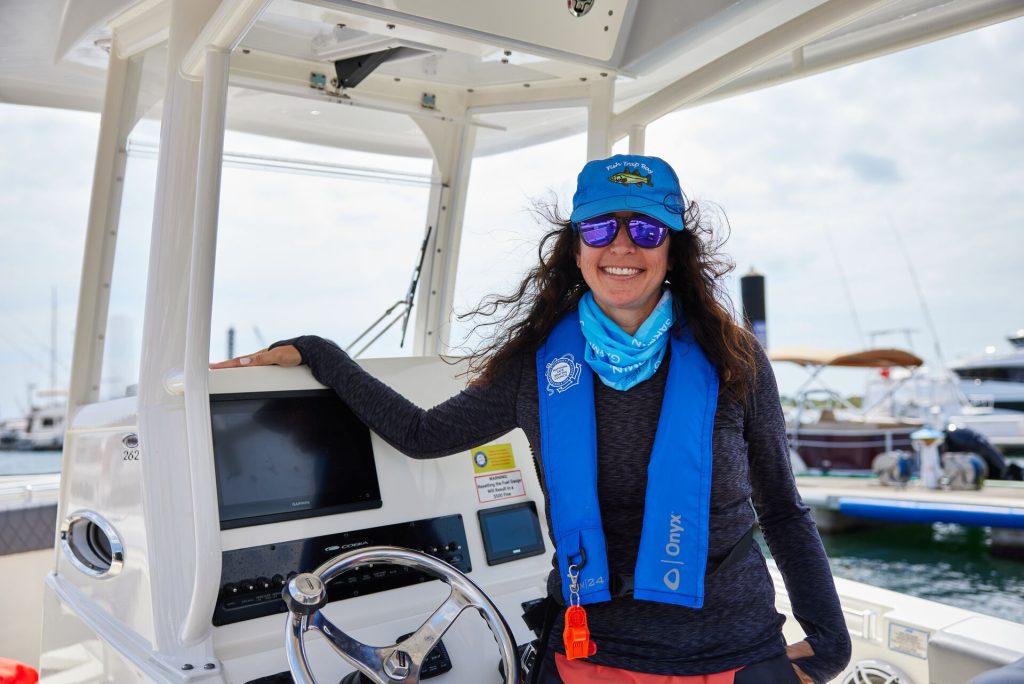
How Do I Register My Boat in the State of Florida?
When registering your boat in Florida, you’ll need:
- Proof of boat ownership (an executed bill of sale, a builder’s contract, a manufacturer’s statement of origin, a federal marine document, or another document acceptable to the FLHSMV)
- An issued title (required prior to registration)
- The proper registration fee
Register your boat by visiting your local tax collector or license plate agent office.
How Do I Title My Boat in the State of Florida?
When titling your boat in Florida, you’ll need:
- The correct titling fee
- The following documents, depending on your vessel:
- New vessel: Manufacturer’s Certificate of Origin (MCO) or its equivalent statement of builder. If the vessel is purchased in a state that does not require an MCO, the proof of ownership is an executed dealer’s bill of sale. The proof of ownership must include a complete description of the vessel.
- Used vessel currently titled in FL: Florida title accurately completed for transfer to the purchaser.
- Used vessel currently titled out of state: Out-of-state title accurately completed for transfer to the purchaser.
- Used vessel from a state that does not require title: Current registration from that state and a bill of sale from the current registrant. Bill of sale must include a complete description of the vessel.
Title your boat by visiting your local tax collector or license plate agent office.

How Much Does Boat Registration Cost in the State of Florida?
Costs vary based on your boat’s type and length. As of 2024, the fees for Florida boat registration are as follows in the chart below:
| VESSEL CLASSIFICATION | LENGTH | VESSEL REGISTRATION FEE | REDUCED FEE | OPTIONAL COUNTY FEE |
| Class A-1 | Less than 12 feet | $5.50 | $2.95 | $1.75 |
| Class A-2 | 12 to less than 16 feet | $16.25 | $11.00 | $7.13 |
| Class 1 | 16 to less than 26 feet | $28.75 | $20.40 | $13.37 |
| Class 2 | 26 to less than 40 feet | $78.25 | $57.50 | $38.13 |
| Class 3 | 40 to less than 65 feet | $127.75 | $94.95 | $62.88 |
| Class 4 | 65 to less than 110 feet | $152.75 | $113.40 | $75.38 |
| Class 5 | 110 or more in length | $189.75 | $141.15 | $93.88 |
| Dealer Registration | $25.50 |
Registration fees also include an additional $2.25 service fee and $.50 FRVIS fee.
The Florida counties of Broward, Charlotte, Collier, Dade, Hardee, Hillsborough, Lee, Manatee, Martin, Monroe, Palm Beach, Pinellas, Polk, Sarasota, and Volusia charge the optional county fee.
How Much Does Boat Titling Cost in the State of Florida?
In addition to registration fees, there are additional fees when applying for a title for your vessel in the State of Florida.
These fees include:
- $5.25 titling fee (for an electronic title), $7.75 (for a paper title) or $11 (for an expedited title)
- An additional fee of $1 for each lien
- An additional titling fee of $4 is required for vessels previously registered elsewhere outside of Florida
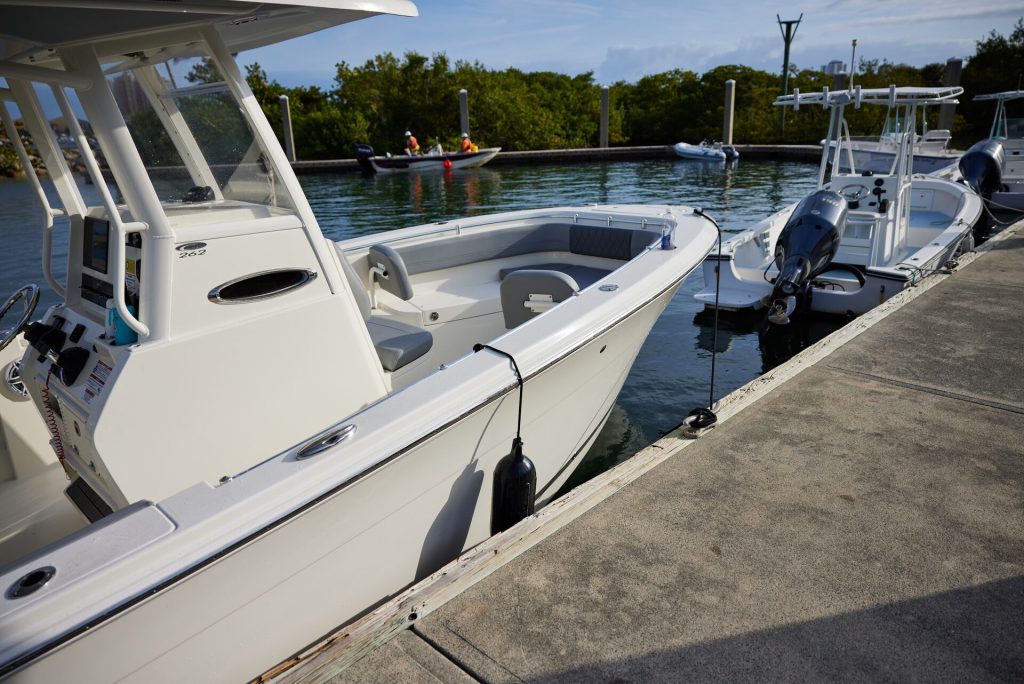
How Do I Transfer Boat Ownership to My New Boat?
In Florida, you must apply for a title transfer within 30 days of the change in ownership. Your local county tax office can give specific instructions, but the purchaser must submit the properly executed title (showing a transfer in ownership) and an application for ownership transfer within 30 days.
What Else Do I Need to Know About Florida Boat Registration?
Operating an unregistered boat after 30 days of ownership transfer or purchase is a second-degree misdemeanor.
Your boat’s registration number should be painted or permanently attached to both sides of the bow on the forward side of your vessel. It must be in block letters and numerals at least three inches high.
Additionally, the hull identification number must be shown permanently on the outboard side of the transom or outermost starboard above the waterline of the vessel.
Will I Need to Take a Boater Safety Education Course?
In Florida, every boat operator born on or after January 1st, 1988, must carry a Boating Safety Education ID card — or a boating license — to legally operate a boat with a motor of 10 horsepower or above. Operators must also carry a photo ID.

Get Your Boater Education Card and Boat Safely in Florida
In addition to your Florida boat registration, do you need your boater education card? We believe everyone needs to be well-versed in boating safety — and that’s where BOATsmart! comes in.
As a program officially recognized by the U.S. Coast Guard and the National Association of State Boating Law Administrators, our course will ensure your education, knowledge, and safety on the water.
Every motorized vehicle must be registered, so keep up with the necessary regulations to stay legal and safe on Florida waters. There’s nothing as fun as a safe boat day! So, sign up for our Florida boater safety course and stay safe on the water every season.
Content originally published in February 2021. Content most recently reviewed and updated for accuracy and relevancy September 10, 2024.
